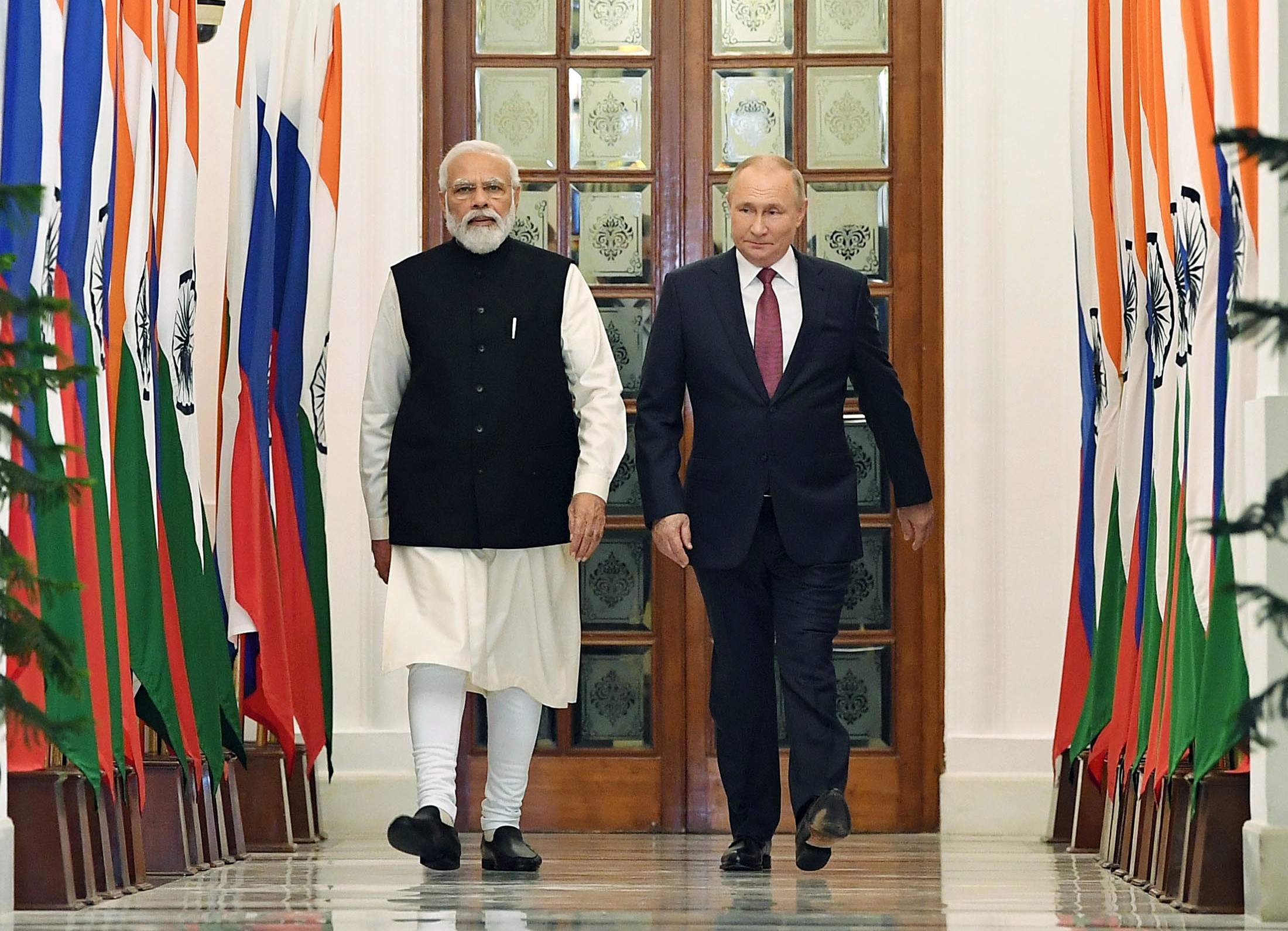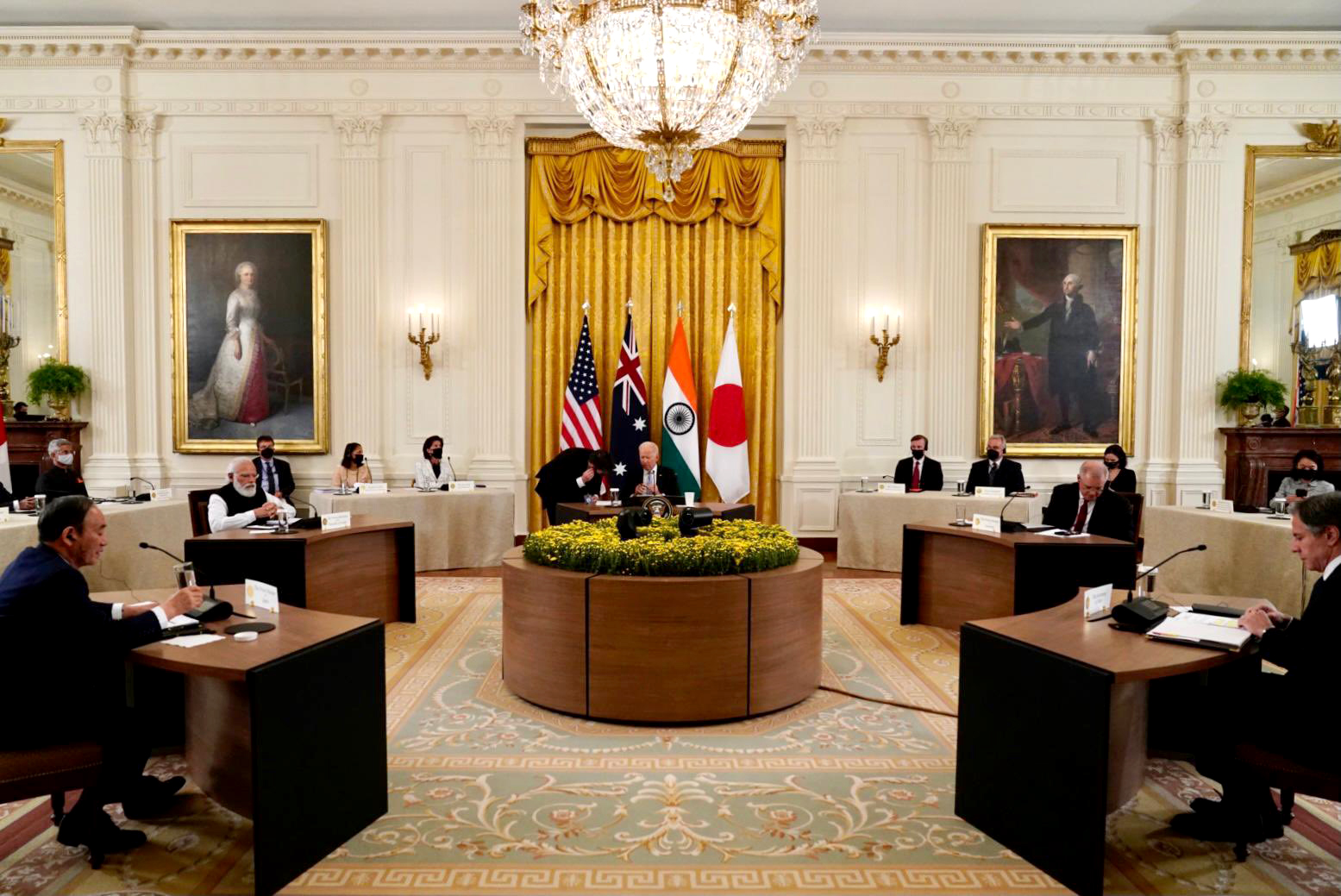Egypt had worked in cooperation with Arab countries and also, the US to de-escalate the conflict between Hamas and Israel. Egypt actively worked with Qatar and the US to de-escalate the conflict and increase the flow of aid to the Palestinians
Anushka
The outbreak of the Israel-Hamas War has resulted in widespread destruction in the Gaza Strip and threatens regional stability. The Hamas attack has ruptured the ongoing ‘normalisation’ efforts between Israel and the Arab countries that came into existence with the signing of the Abraham Accords in 2020. The ongoing war has also negatively impacted the prospect of regional economic security. In this context, Egypt has taken several initiatives to protect its national security, resolve the issue of refugees, prevent the rise of extremism in its bordering region and consolidate its position as a regional leader. This paper aims to assess Egypt’s motivations to de-escalate the tensions between Israel and Hamas and the initiatives it has taken in this pursuit.
Motivations for Egypt to De-escalate
the Israel-Hamas War
Egypt is the only country that shares a land border with both Israel and the Gaza Strip. Therefore, it also faces the direct impact of the ongoing Gaza war on national security and economic and political stability. The war posed a significant challenge to the already fragile Egyptian economy and a new security risk in the Sinai Peninsula. Besides, there is a threat of the rise of extremism. Egypt’s government has increased the deployment of military and security forces in the Sinai Peninsula to tackle the rising threats from Islamist militants, including the Islamic State and the Islamic Jihad. Egypt under President al-Sisi played a proactive role in protecting the national security and internal stability of the country. The ongoing war is also an opportunity for Egypt under President al-Sisi to revive its stature as a regional leader.
Egypt’s Initiatives to De-escalate
the Gaza War
Egypt had taken the following initiatives to mediate between Israel and Hamas to bring peace and stability to the region:
Cairo Peace Summit: Owing to the security threats to its border in the Sinai Peninsula from the Gaza War, on October 21, 2023, Egypt held a Cairo Peace Summit in which it proposed a peace process between Hamas and Israel through military de-escalation, humanitarian aid, and a permanent ceasefire. To meet the proposed goals, Egypt sought cooperation from the 34 participants including UAE, Jordan, Saudi Arabia, US, and Qatar along with France, Germany, the United Kingdom, Italy, and South Africa along with the United Nations.
Three-Stage Plan: Egypt later on December 24, 2023, proposed an initiative called the Three-Stage Plan for the resolution of the Gaza War. It included the release of Israeli hostages and Palestinian prisoners, followed by Egypt-sponsored ‘Palestinian national talk’ aimed at ending the division between Palestinian factions (Hamas and the Palestinian Authority). The final phase proposed a comprehensive ceasefire and withdrawal of Israeli troops from the enclave to facilitate the return of Palestinians back to their home. However, the three-stage plan was dead on arrival because Hamas and Islamic Jihad reportedly rejected the Egyptian proposal, fearing loss of control over the Gaza Strip in return for a permanent ceasefire with Israel.
Egypt Collaborated with other Initiatives towards Gaza War.
Egypt had worked in cooperation with Arab countries and also, the US to de-escalate the conflict between Hamas and Israel. Egypt actively worked with Qatar and the US to de-escalate the conflict and increase the flow of aid to the Palestinians. After a series of negotiations in Doha, they were successful in achieving the first breakthrough that led to the agreement between Hamas and Israel to exchange prisoners and hostages and establish a ‘humanitarian pause.’ The ‘humanitarian pause’ lasted for seven days, from November 24 to November 30, 2023, while Hamas released more than 100 hostages and Israel freed about 150 Palestinian prisoners. The ‘humanitarian pause’ did not convert into a ‘permanent truce’ because Israel continued its air strikes on central and southern Gaza and Hamas retained the remaining hostages.
Egypt also participated in the Foreign Ministers Meeting conceived by Saudi Arabia which was held on February 6, 2024, in Riyadh to propose a Joint Peace Plan for the post-Gaza War. The countries that participated in the meeting were Qatar, the UAE, Saudi Arabia, and Jordan along with the Palestinian Authority. The plan included the rehabilitation of the Gaza Strip and the establishment of a Palestinian state. However, the plan did not mention the role of Hamas in the establishment of a Palestinian state.
Due to persistent efforts and persuasion from other nations, the Israeli government approved humanitarian aid through the Rafah border. It allowed the UN and other groups, like the Palestine Red Crescent Society, to provide humanitarian aid. Besides, the lifting of the siege on the Gaza Strip for medical aid facilitated the procedure for safe and sustainable access to humanitarian and relief assistance in the Gaza Strip.
Egyptian initiatives like other efforts have limited success as the war continued in Gaza, and so has the catastrophic humanitarian crisis. With war spreading towards the south of the Gaza Strip and the Israeli plan to invade Rafah, the tension between Egypt and Israel is rising. Recently, Egypt warned to suspend its peace treaty with Israel in case of Israeli hostility in Rafah city.
Conclusion
It is important to note that the geopolitics of West Asia has always been complex. Egypt’s initiatives to promote peace and stability in the region are significant in understanding its national interests and desire to revive itself as the regional leader. Egypt acted as an essential player in peace negotiations, particularly for hostage release and humanitarian aid. It helped Egypt regain its centrality in the security and geopolitical affairs of the region and ultimately helped Egypt enhance its power in the region.
Anushka is a Research Intern at Indian Council of World Affairs, New Delhi. Views expressed are personal.
This article first appeared in the Viewpoint section of the website (www.icwa.in) of Indian Council of World Affairs, New Delhi


























